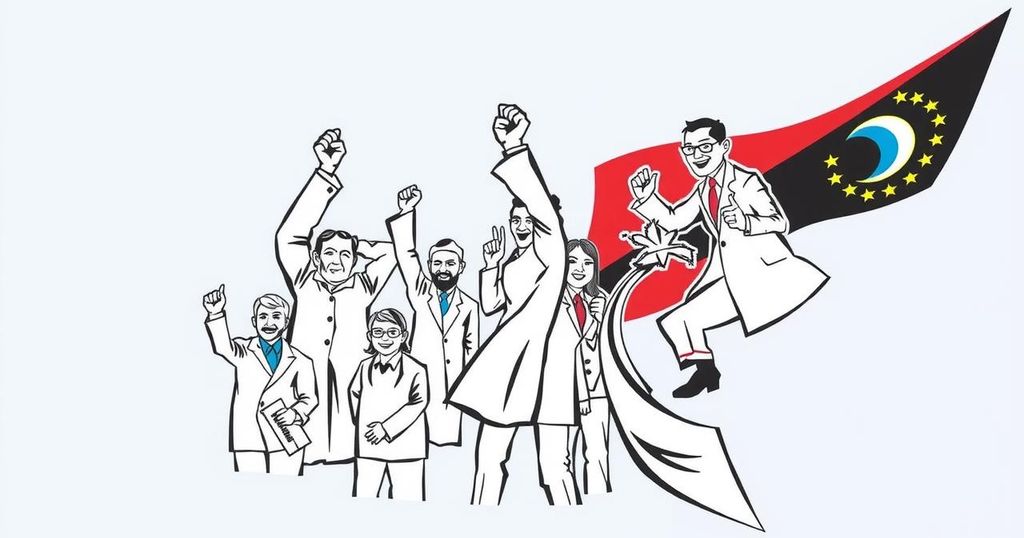Mauritius’s opposition coalition won the recent election decisively, securing all parliamentary seats and ending the ruling government’s term amid corruption allegations. Navin Ramgoolam returns as Prime Minister, indicating a significant political shift in the country.
In a remarkable turn of events, the opposition coalition in Mauritius has achieved a significant electoral victory, claiming all 62 available parliamentary seats. This outcome marks a strong rejection of the current government led by Prime Minister Pravind Jugnauth, who conceded defeat prior to the official results being fully disclosed. The newly victorious Alliance for Change coalition reinstates Navin Ramgoolam as Prime Minister, a position he previously held on two occasions. The general election results indicated a sweeping defeat for the governing coalition, which had not secured any seats across the island’s 21 constituencies. Mr. Jugnauth’s administration, in power since 2017, was marred by allegations of corruption, particularly following the leak of incriminating audio involving politicians and business figures. In light of the results, Mr. Jugnauth expressed, “The population has decided to choose another team. I wish good luck to the country.” Although official results will include the two seats from Rodrigues Island and are set to be finalized soon, the opposition is already confirmed as the winner of all 60 announced seats. Following this election, the Electoral Supervisory Council will appoint an additional eight members, culminating in a total of 70 parliamentary seats. More than one million citizens registered to participate in this, the twelfth election since Mauritius became independent from the United Kingdom in 1968.
Mauritius has long been recognized as a stable democracy, experiencing economic growth largely driven by its finance, tourism, and agricultural sectors since gaining independence. This recent election, marked by intense scrutiny of the ruling coalition, reflects a broader trend of political accountability and voter engagement. Notably, Mauritius has held free and fair elections consistently, praising its democratic processes. The return of Navin Ramgoolam signals a potential shift in governance and policy direction following the current government’s challenges.
The recent electoral victory of the opposition coalition in Mauritius highlights the electorate’s desire for change and sustains the country’s democratic traditions. With the reinstatement of Navin Ramgoolam, the nation anticipates a new phase, especially as issues within the previous government, including corruption allegations, come to light. The decisive nature of this election outcome may inspire renewed confidence in democratic practices and governance in Mauritius moving forward.
Original Source: www.expressandstar.com






